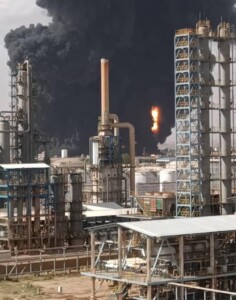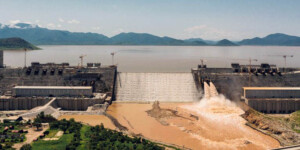White Nile flooding isolates 24 villages, water shortage in eastern Sudan
The White Nile River has flooded 10,000 acres of farmland at Um Jar Island in Sudan’s White Nile state. The flooding, a result of a damaged dam, has caused a power outage for 24 villages on the island for the last two days.
The White Nile River has flooded 10,000 acres of farmland at Um Jar Island in Sudan’s White Nile state. The flooding, a result of a damaged dam, has caused a power outage for 24 villages on the island for the last two days.
Journalist El Tahir Ishag told Radio Dabanga that the dam separating the island and the main stream White Nile was damaged which caused flooding of 60% of the agricultural land on the island. He pointed out that flooding is threatening a number of villages of Um Jar Island.
He said that the water flooding of the electricity poles which caused power outages at 24 villages on the island.
He warned of large losses among the farmers after the water flooding of the agricultural land which is threatening the winter farming season.
He also criticised the authorities for not opening Jabel Awlia dam, which lies on the state’s northern border with Khartoum, for water discharge and pointed to expectations of continued flooding until December.
Kassala
In eastern Sudan, residents of Kassala west locality have complained of lack of water and electricity services and low education, despite the locality government’s huge contribution to the state treasury.
One of the residents told Radio Dabanga that they are forced to spend more than SDG 60 a day to buy water from tankers.
He pointed to the lack of water network in the locality, despite the repeated promises of the authorities.
He pointed out that the locality is living in total darkness despite the connection of electricity poles for more than a year.
He pointed out that the only secondary school in the locality is Nazlat El Omda which is witnessing a severe shortage of teachers of English and engineering sciences.
He said that the school had to stop the third secondary class because of the lack of teachers and the terrible deterioration in the educational environment.











 and then
and then